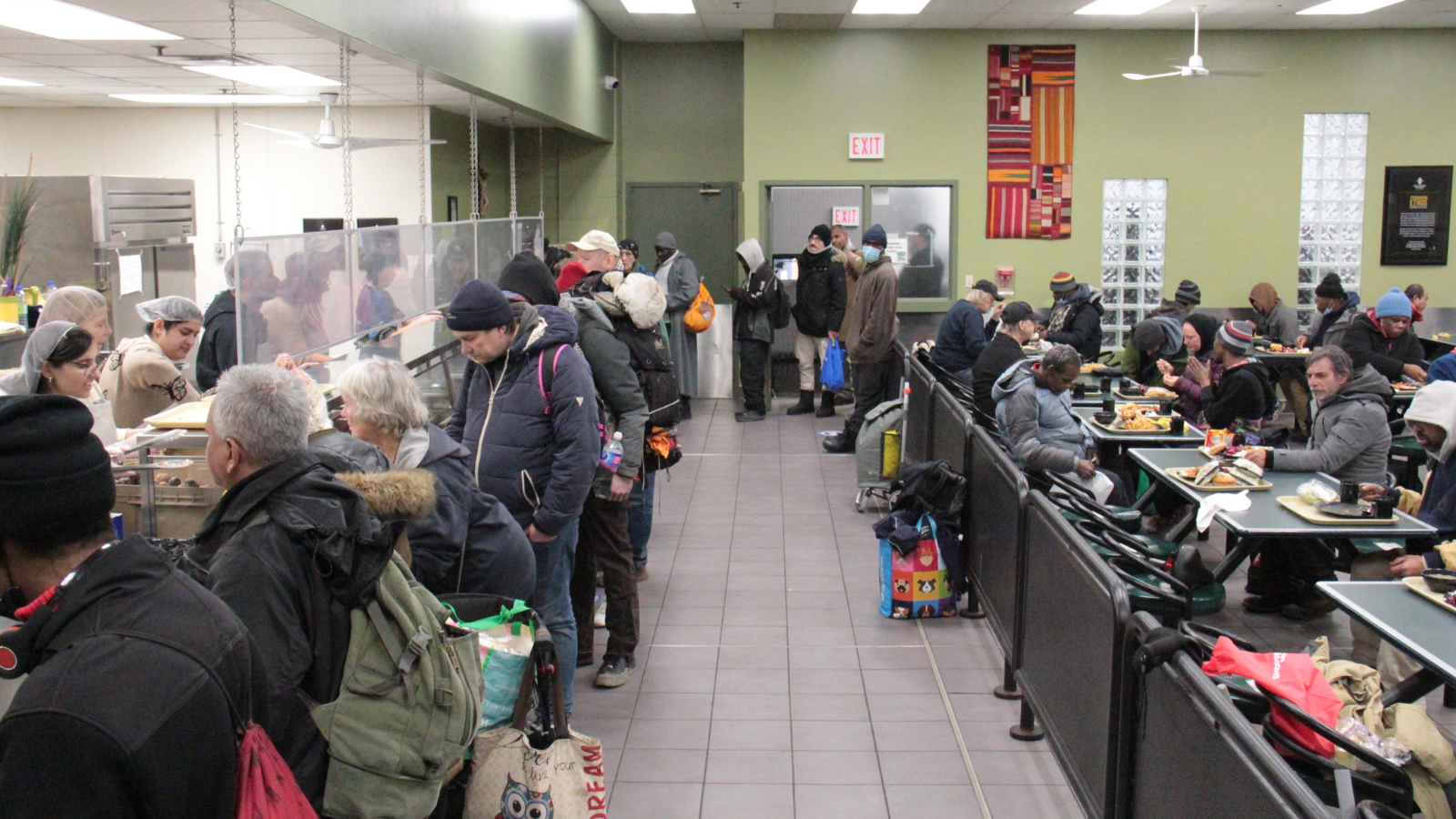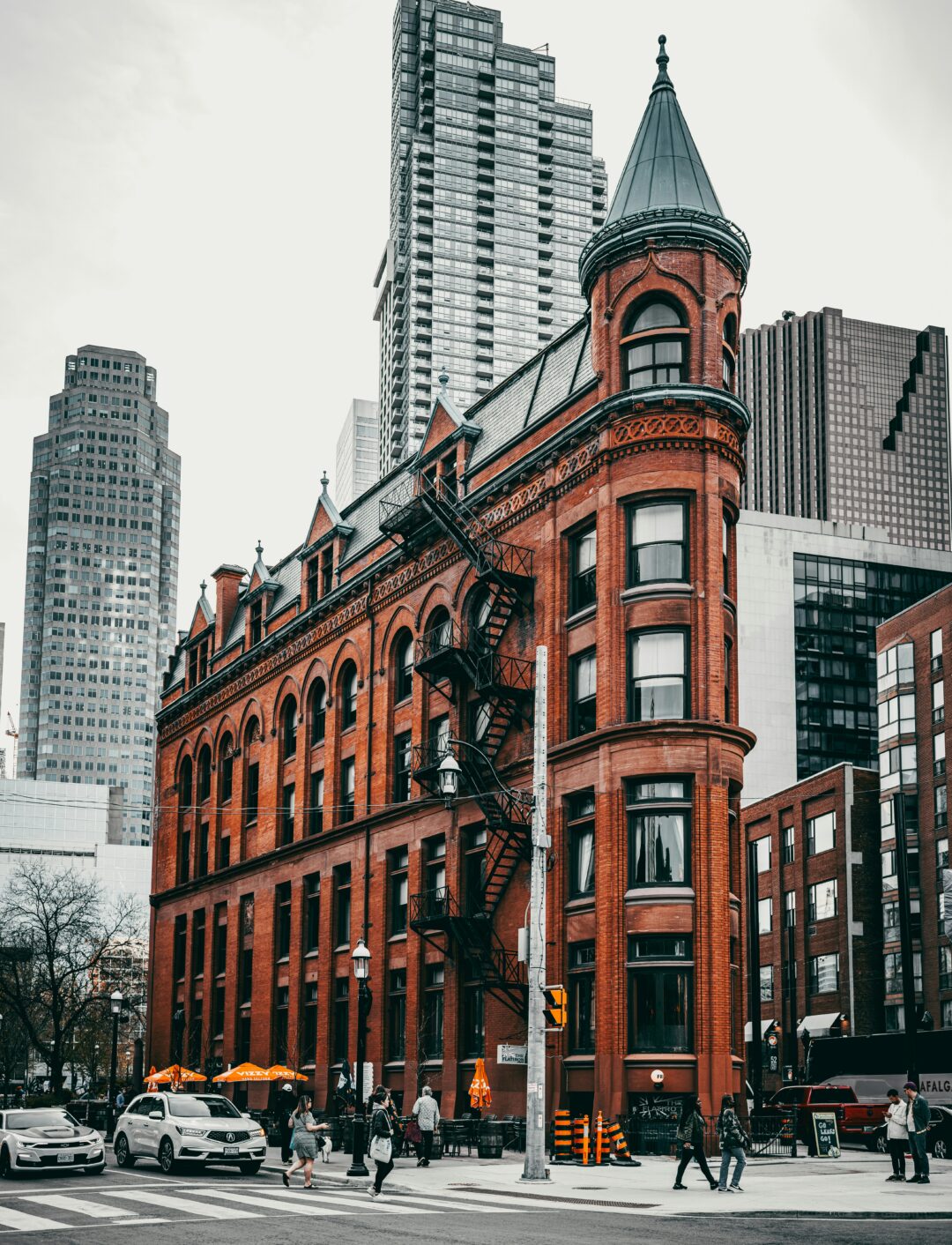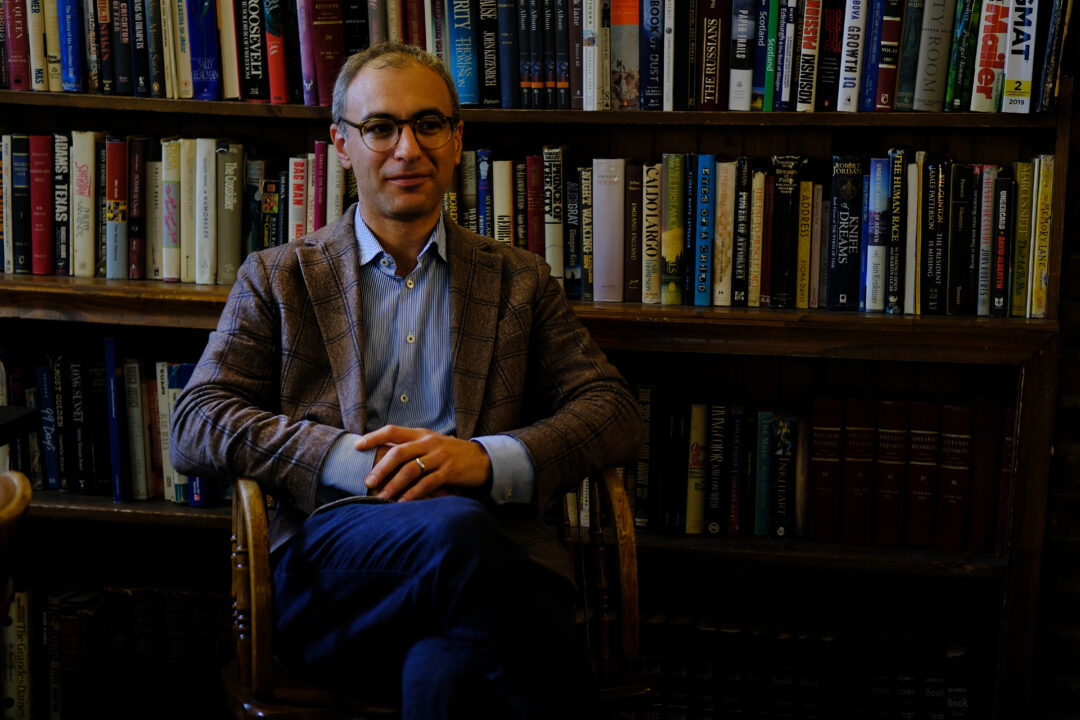Winnie Czulinski –
Among those coming for the nearly 1,000 meals served by Good Shepherd Ministries every day are sure to be men and women who once faced death and deployment in military uniforms and fatigues.
Whether serving in Afghanistan or 1990’s operation against Iraq – or simply training rigorously – they are among the street population found near the Ministries at 412 Queen Street East.
A GSM survey several years ago in response to a Royal Canadian Legion inquiry revealed that nearly 10 percent of over 600 individuals indicated that they had served with the Canadian Armed Forces. It was a higher proportion than that of the armed forces to Canada’s population. The survey inspired Good Shepherd Ministries, Veterans Affairs Canada and the Royal Canadian Legion to form a partnership to offer assistance to veterans.
“It’s a comprehensive support,” says Aklilu Wendaferew, registered social worker and executive director of Good Shepherd Ministries. “The biggest focus for us is to make sure that (homeless veterans) have housing. When we serve them, they are either on the street or in the shelter system. So we want to get them off that, in an established and dignified way.”
How does someone who’s served in the military end up on the street? PTSD (post-traumatic stress disorder), depression/ mental illness, poor health, addiction, divorce, and other issues may affect cognitive and financial abilities. There may be a lack of help or debriefing when exiting the military. Vets may struggle or fail to gather the necessary documentation to go through the benefits-application process. They may need system-navigation help, help with delays – and even basic validation.
Billy Kang, a veterans training and employment worker, says, “We have guys here who have served for 20 years but they don’t identify as a veteran – in their mind that’s a WWII vet. So they won’t look for help.” By the current definition, those who have completed basic training and been honourably discharged are veterans.
A homeless veteran – from the Canadian Armed Forces or those of an allied country – can receive help for issues such as addictions, mental health, anger/ stress management, communication, self-care, housing, tenants’ rights, job skills/interviews, government help/pensions, and practical skill development like food preparation. Good Shepherd’s abstinence-based residential program, Drug and Alcohol Recovery Enrichment (DARE), has beds reserved for veterans. GSM also offers peer support, from other vets.
But as Jasmin Selvakkumaran, a veteran transition worker, says, “We’ll look at (a client’s) position/ranking, but we don’t really dig deeply into their military history. That’s not what matters right now. It’s how to help them, and get them back into civilian life.”
A recent federal housing subsidy specifically for armed-forces members means that as of September 2024, Good Shepherd Ministries can continue its veterans work for several more years.
The ministry also works with Helmets to Hardhats Canada, a non-profit Ottawa-based organization that has been providing second-career opportunities to the military-affiliated community through building trade unions for over a decade. Aside from Canadian Armed Forces members, H2H also assists Afghan nationals (e.g., wartime interpreters) with an enduring relationship to Canada.
Helmets to Hardhats testimonials come from myriad ex-military members now working in trades like steam-fitting, millwrighting and carpentry. Some now own their own companies. Curtis Houston, assistant director of the International Union of Elevator Constructors educational program and member of IUEC Local 50 Toronto, says online that the trades are “a great fit.” A former Canadian Armed Forces infanteer, he had “transferable skills” like radio communication.
Good Shepherd Ministries clients not able to join the trades might do well with coding or security, for example. It’s a dynamic process, sometimes slow, with relapses, then an adaptation of the plan. Education within the community is ongoing.
“A lot of people view veterans and ex-military as the Hollywood creation and concepts we’re all familiar with,” says Kang. “Part of (outreach) is to spread that awareness of our program, and give these ex-military men and women respect. When they signed this contract to serve the country, it’s not just to go to war – it’s peacekeeping missions, military response to emergencies, floods, COVID, and training other countries. That’s what we’re trying to thank them for.”
Wendaferew says, “Helping even a single veteran stabilize, get off the street, re-establish themselves, regain their full identity, and eventually find some kind of job or training, is success.”
While adjusting and progressing in that way, vets also can count on aftercare and follow-ups from Good Shepherd Ministries for a year, or beyond.
https://goodshepherd.ca/homeless-veterans-services/




